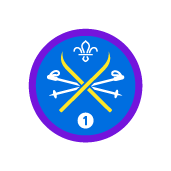
Promise
The Promise is a simple way to help young people and adults celebrate their shared Scout values. Every Scout promises to stick by these values when they become a member.
It’s important that every member has the chance to think about their Promise, and chat through its meaning, before they make their Promise for the first time during a special ceremony we call an Investiture.
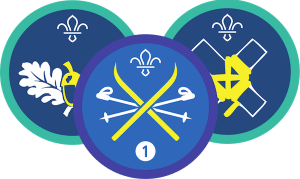
Activity Badges
Master something you love, or try something new. If it spurs you on or stirs your interest, we’ve probably got a badge for it.
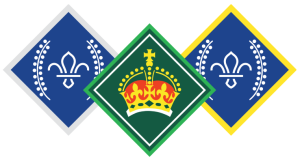
Challenge Awards
Explorers start small but think big, always challenging themselves to do more and be more. It all starts with an award.
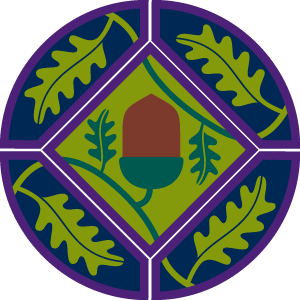
Become a Young Leader
Explorer Scout Young Leaders are Explorers who volunteer alongside adult leaders in a Squirrel Drey, Beaver Colony, Cub Pack or Scout Troop. They’re a valuable asset to any leadership team and play an active role in the section, bringing a range of fresh ideas to the table and acting as positive role models for the young people they work alongside.
All Young Leaders in the Squirrel, Beaver, Cub and Scout section who are between the ages of 13.5 and 18 must be members of a Young Leaders Unit.
Badges to earn at home
Wanting to earn every badge you possibly can? Well the badges below are ones which we’ll probably never do within our weekly meetings – so have a go at home, keep track of your progress and show your leaders with either pictures, a log book or certificates.
Activity badges
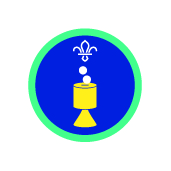
Fundraiser
How to earn your badge:
- Identify and organise a fundraising initiative for one of the following:
- The Scout Association, to help promote and grow your local Scout group, Scouting nationally or both.
- Another UK registered charity of your choice.
- Find a compelling message – a short reason you can communicate to potential donors about your chosen cause. It must be inspiring and clear in order to raise the most money.
- Use social media to promote your fundraising initiative.
- Set a fundraising target and a date to raise it by. We suggest a minimum of £500.
- Call on others to help you and form a fundraising team. Motivate and inspire them to encourage others to donate.
- Prepare a short presentation about your fundraising challenge and submit it to the members of your local Executive Committee or your leader, covering:
- the cost versus the amount raised
- how you used social media and reached outside your own immediate network to garner support
- three top tips that could help other fundraisers.
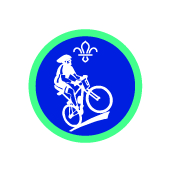
Mountain Biking
You should aim to spend between 6 to 12 months working towards this badge.
Choose 1 of the following options:
- Competition and exhibition
- Regularly participate in a mountain biking discipline such as downhill, dirt jump, four cross (4X) or any other mountain bike sport as agreed by the leadership team. Show how you’ve improved over time and show evidence of this.
- Talk to a group of young people about the skills and techniques of your chosen discipline.
- Talk to an appropriate adult about the safety rules in mountain biking and how to use the skills you’ve learned responsibly.
- Take part in at least two competitions or demonstrations. Talk about your performance and ways you could improve with the examiner or instructor.
- Expedition
- Show that you understand the Mountain Bike Code of Conduct.
- Show that you are able to control your bike over different types of terrain.
- Explain what to do in case of an accident. Ensure you have a basic knowledge of first aid, including how to treat hypothermia.
- Read a map well and orientate it using map features or a compass.
- Give reasonable estimates of times of transit, over distances in different terrains.
- Plan and carry out a two-day ride with at least four hours’ riding each day. At least 75 per cent of the ride must be off-road, with a minimum of 50 per cent on unsurfaced tracks.
- Be able to perform emergency repairs in the field as listed for a T1 Mountain Bike Permit.
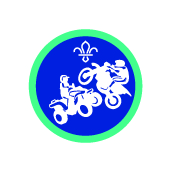
Motor Sports
You should aim to take part in your chosen activity for 6 to 12 months.
How to earn your badge:
- Take part in your chosen motor sport, once you’ve agreed the activity with your leadership team. Show how you’ve improved over a period of time.
- Talk to a group of young people about the skills and techniques you have used.
- Explain the safety rules, and how to responsibly use the skills you have learned, to an appropriate adult.
- Take part in at least two competitions or demonstrations. Talk about your performance and ways to improve with the examiner or instructor.
- Take up an organisational role on at least two occasions.
It could involve marshalling a motor sports event, timekeeping or administration. Show that you’re making a positive contribution to the development and continuation of your chosen motor sport.
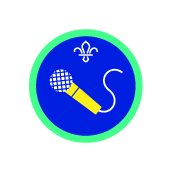
Media Relations and Marketing
How to earn your badge:
- Understand and show how to use the Scout brand, using resources available from UK HQ
- Arrange a visit for a group of Explorers to find out about a media outlet and how they create their content.
It could be any media outlet from radio, TV, newspapers and online. - Using what you have learned, complete four options from Lists A and B below:
You need to do at least one from each list.- List A: Creating content
- Create some media content for the Group, District or County newsletter, Scouting Magazine or online.
- Get approval from your local Media Development Manager to secure media coverage for a Scouting event, expedition or activity. Prepare a press release and include a photograph.
- Help to manage and maintain the social media pages for your local Scout Group for a period of time agreed by your Unit leader.
- Take part in or produce a package about Scouting for local TV or radio.
- Produce an audio, visual or written report about an issue affecting young people or your local Scout Group. Include different contributors such as members of the public, local personalities or public figures.
- List B: Creating a media package
- Give a 15-minute presentation, with images, about Scouts to another organisation, such as a local Lions or Rotary Club.
- Assist the District or County with a promotional event or activity.
- As a team, produce at least four editions of a paper or e-newsletter for Explorers in your Unit or District or for members of another section.
- Plan, develop and carry out a local recruitment campaign to get more adults and young people to join Scouting.
- Create a display or exhibition for Scouts and parents to promote Explorer Scouting.
- Conduct a survey to find out young people’s views on Scouting. Share your results with the leadership team and discuss them with others in the Unit.
- Represent Explorers at a local government youth council or collective organisation youth forum.
- List A: Creating content

Racquet Sports
How to earn your badge:
- Regularly participate in a racquet sport over a period of three months. Demonstrate an improvement in your level of skill.
- Demonstrate your skills with your Unit and play your chosen sport with them.
You’re not expected to play the role of an instructor and an adult should supervise you all. - Talk about any safety procedures and rules in your chosen sport, and how to abide by them.
- Take part in at least two competitions or demonstrations.
Talk about your performance and ways to improve with your coach or instructor.

Science and Technology
You should be aiming to work towards this badge over a period of 6 to 12 months.
Choose 1 of the following options:
- Meteorology
- Regularly record weather observations and measurements over a period of time. You can break up the time if you like – you don’t have to keep continuous records.
- Demonstrate your skills in meteorological recording and observation to a group of young people.
- Give a detailed explanation of the formation of clouds and the weather associated with different clouds and fronts.
- Find out detailed information about how weather maps are produced. Show how you interpret them for use in Scouting activities.
- Mechanic
- Regularly maintain a mechanical machine over a period of time. You should use the time to learn a variety of techniques.
- Demonstrate your mechanical knowledge. Explain the principles of operating an engine, gearbox and differential axle.
- Talk about the safety rules for machine maintenance and how you use the skills you’ve learned responsibly.
- Radio communication
- Regularly take part in an activity involving in a method of radio communication. You should use the time to learn a variety of techniques and recording activity and develop your skills.
- Demonstrate a radio communication method to a group of young people.
- Talk about the rules or codes of practice for radio communication and how to use equipment responsibly.
- Share your knowledge of radio communication alphabets and internationally recognised call signs and signals.
- Electronics
- Regularly take part in an activity involving electronics. Use the time to learn a variety of techniques and equipment and improve your skills.
- Show and explain your project work in electronics to a group of young people. You’re not expected to play the role of an instructor and an appropriate adult should supervise your group.
- Discuss the safe working practices of electronics and how to use equipment responsibly.
- Demonstrate a detailed knowledge of circuits, components and the symbols used in electronics.
- Astronomy
- Regularly take part in an astronomy activity. Use a variety of instruments, record your observations over a period of time and show improvement in your skills.
- Demonstrate your skills in astronomy, including recording and observation, to a group of young people.
- Learn the meaning of technical astronomical terms. Give a detailed description of our galaxy and solar system, including planets and other bodies.
- Demonstrate a good knowledge of the history of space exploration since 1969.
Staged badges
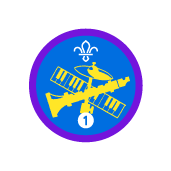
Musician
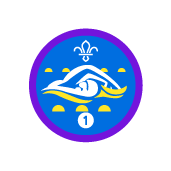
Swimmer
